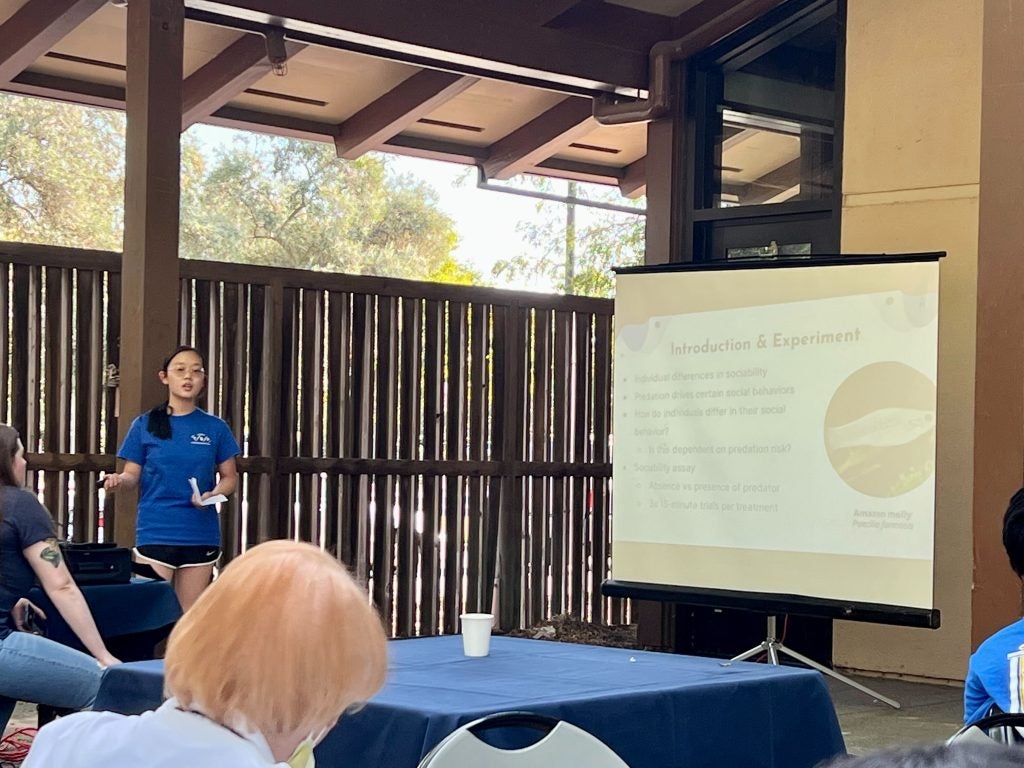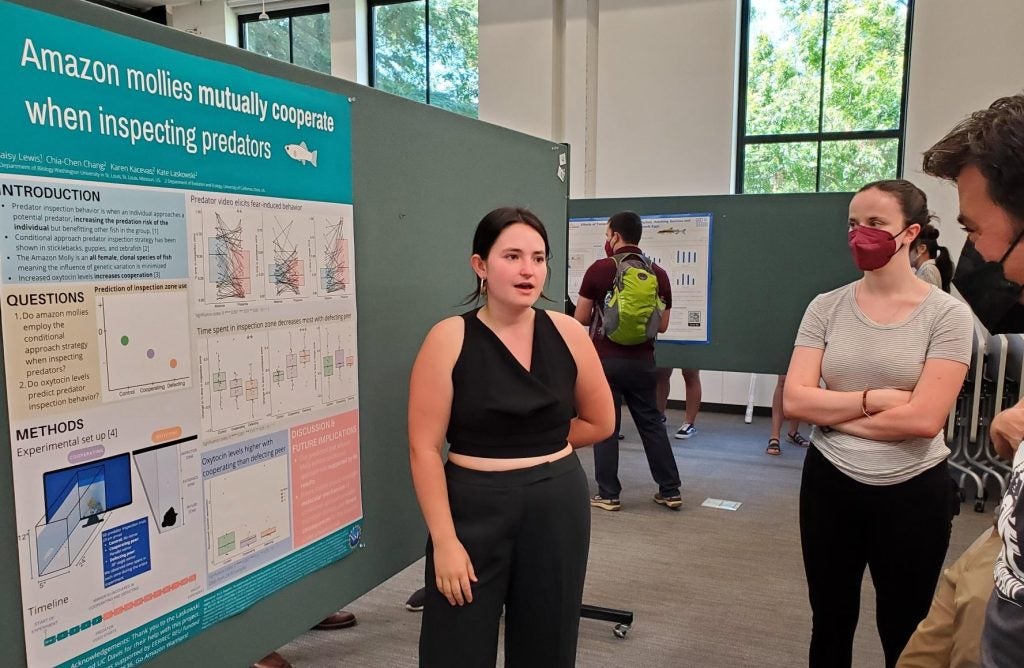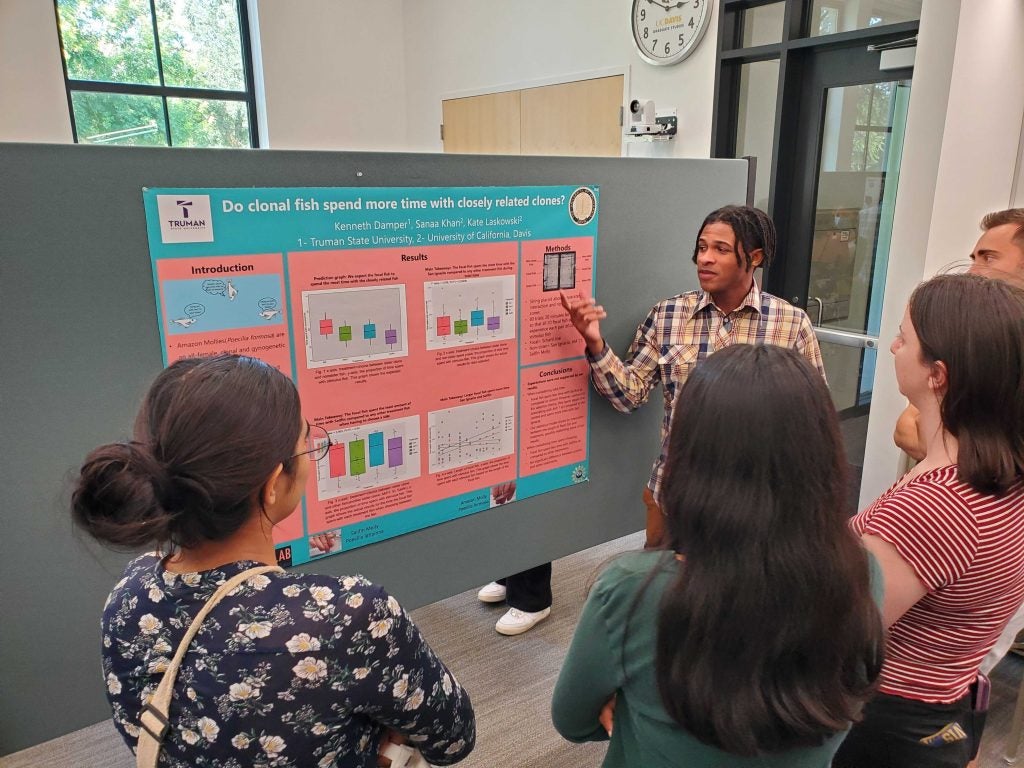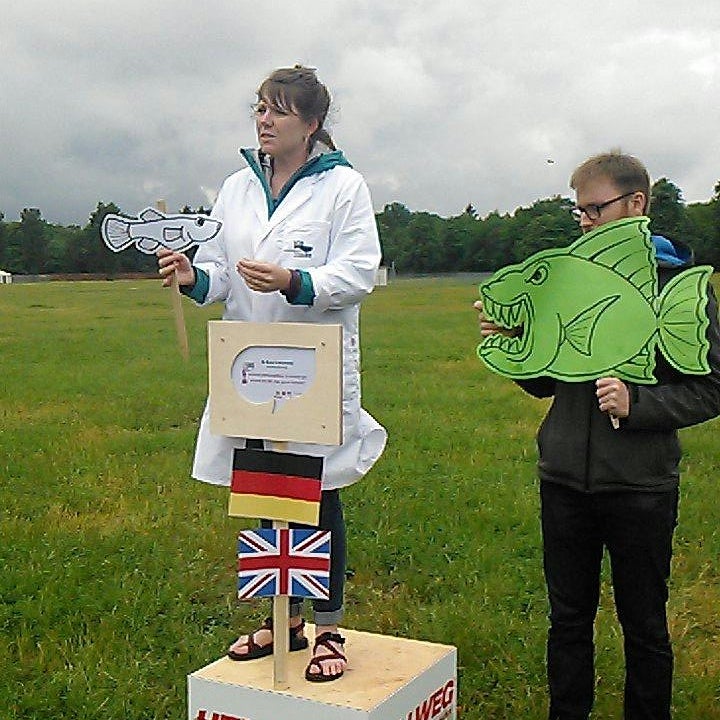EVE 225 - Linear mixed models in ecology & evolution
I really love teaching statistics. I am a firm believer that being a better statistician will help you be a better scientist. Unfortunately, I think lots of students are scared away from statistics early on and don't realize the elegance and simplicity of most statistical methods.
EVE 225 covers the statistical theory and practical application of general linear models and general linear mixed models using examples drawn from evolutionary and behavioral ecology. It focuses specifically on the analysis of clustered data, e.g. samples taken from the same lake, or measurements made on the same animal, which are common in ecological and evolutionary research. Students will learn 1) the assumptions of traditional linear models and 2) how such hierarchical or nested data violate these assumptions. Students will then learn 3) to build, select and validate mixed models that include random effects and 4) how to interpret and report such results for publication. The lecture portion of the course will focus on building the students’ conceptual framework of the underlying statistics of such models and the discussion/lab section of the course will focus on the hands-on application of each week’s knowledge for analyzing and interpreting example data sets in the statistical computing language R. The course is designed to build on knowledge students would have gained in a basic statistics (e.g. ANOVA, regression) or experimental design course and provide a firm conceptual foundation for students who wish to take more advanced statistical or modeling courses.
A general syllabus for the class and what topics will be covered can be found here.
The recordings for the class from Winter 2023 can be found here.
The recordings for the class from Summer 2020 (when it was taught as a 10-day workshop) can be found here.
EVE 225 is offered every other year in the Winter or Spring quarters (was last offered Winter 2023).
Data Detectives: uncovering mistakes, misconduct and fraud
This first-year undergraduate seminar course explores what happens when we find problems in published scientific work. How do we uncover such problems? What do we do next once we realize that data has been compromised? What are the ethical and legal implications of mistakes and misconduct in scientific research? What practices can we adopt to make mistakes and misconduct less likely to happen and more likely to find? Each week students will read about a case study of data irregularities to understand what happened, how the problems were uncovered and discuss strategies and policies that can limit such problems in the future.
Data Detectives was taught last in Winter 2023 and is taught every other year; the syllabus with list of readings can be found here
Outreach and broadening participation in science
The Amazon Warrior team is passionate about outreach and broadening participation in science to individuals from groups that have been historically excluded from academic research. In addition to public outreach events, we also participate in several programs designed to share our science with the general public including UC Davis's Ecological and Evolutionary Response to Rapid Environmental Change (EEREC) REU program and the Young Scholars' Program

YSP student Sophia Jin presents results of her summer research project (summer 2022)

Daisy Lewis, REU student extraordinaire, presents her research project at UC Davis (summer 2022)

REU student, Kenny Damper, presents his summer project at the research symposium (summer 2023)
